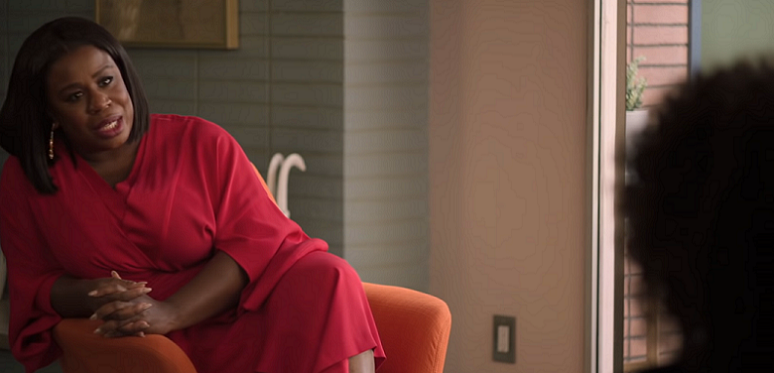With Mental Health Awareness Month now underway, the reboot of HBO’s “In Treatment,” a drama series that shines a spotlight on mental health issues, could not come at a better time. Produced a decade after the season three finale, season four was reimagined with a whole new cast and updated to reflect the mental health challenges of today, including issues that people, particularly people of color, are facing during the COVID-19 pandemic.
“As we approached reimagining the show, we wanted to make sure that our priorities were to honor the original American version, but also make sure that we were updating it and making it feel like a show that is being made in 2021,” said Co-Executive Producer Jennifer Schuur at the Television Critics Association’s winter press tour. “We have an opportunity to say some very important things about our particular time. We have racial justice movements and the Me Too movement happening. We talk about toxic masculinity and addiction. We cover a lot of topics all set in the present day.”
The concept for the reboot of the show started last July, a few months into the pandemic. The show received a green light and production started in the fall. Like the original, the show centers around a therapist and her private sessions with patients. This season, Uzo Aduba replaces Gabriel Byrne as the lead. She plays Dr. Brooke Taylor, a Black therapist with her own challenges as she navigates issues around her race, her profession, and her personal life.
“Brooke” also provides pro bono services throughout the season to a patient who is a person of color. Josh Allen, co-executive producer, who is Black, explained why the writing team made these choices: “I wanted to, in reimagining the show … make sure that we were expanding the idea of who gets access to therapy and under what circumstances to destigmatize it. We especially, in 2021, need it. I think putting that particular face on it, hopefully, will do something in that regard. That was the thought behind creating this particular therapist and also creating a diverse patient pool that she works with.”
The storyline also incorporates real-life events of 2020 and conveys the transition from Brooke’s in-person therapy meetings in her office to videoconferencing sessions at her home when it becomes unsafe for her to meet with patients in person. In a tribute to her character, Uzo Aduba remarked, “Even in this pandemic, as you hear her say in the show, she shows up for her patients. She shows up for them no matter what. And, in this instance, even during quarantine, during lockdown, she’s dressed, ready to be of service to them.”
Aduba added, “I think that also extends as far as opening up to them about her own experiences to help them come closer to the things that they’re looking to confront.” Aduba was actually referring to a type of therapy and treatment that viewers will see her character use on her patients throughout the show.
Schuur shared that the team worked with a consultant throughout the show who would advise them on how a therapist might approach a particular problem with a patient. Schuur commented, “I think Dr. Brooke Taylor brings much more of herself into the room with her patients, and she believes in self disclosure, and without asking anything of the patients themselves to take care of her. Offering her own life experience and her feelings in a session actually creates more honesty with her patients and an ability for them to become more vulnerable and open with her.”
In sharing his own personal drive to work on a show about mental health, Allen said, “I come from a family of people who needed therapy and didn’t know they needed therapy … There’s such a stigma attached to it, especially in communities of color. So it felt important to me, personally, to put that on television to show that we all need this.”
Season four of HBO’s “In Treatment” premieres on May 23.









